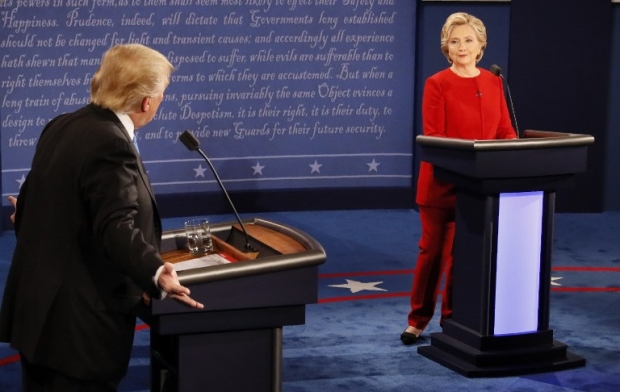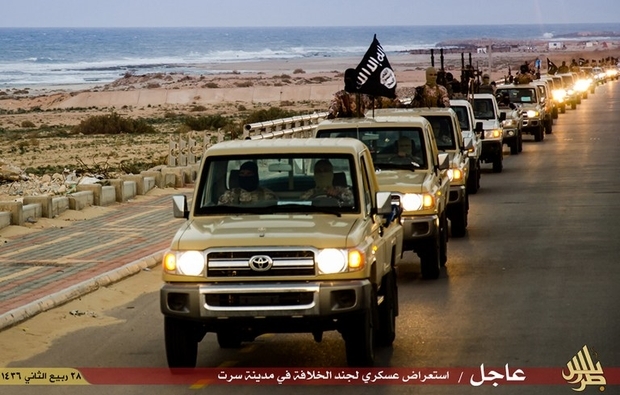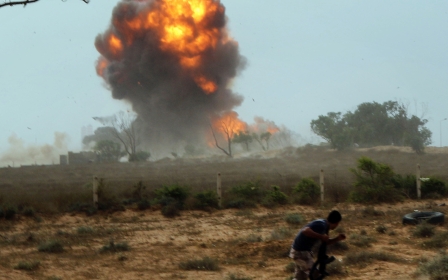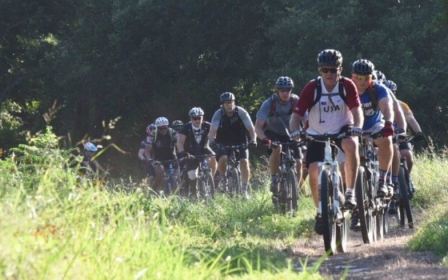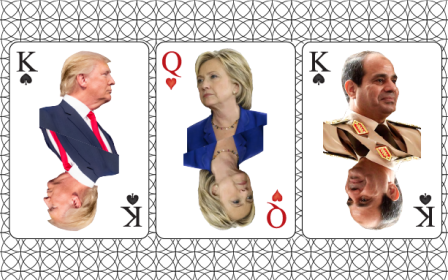Clinton counterpunch: How to debunk Trump's IS and Libya lies
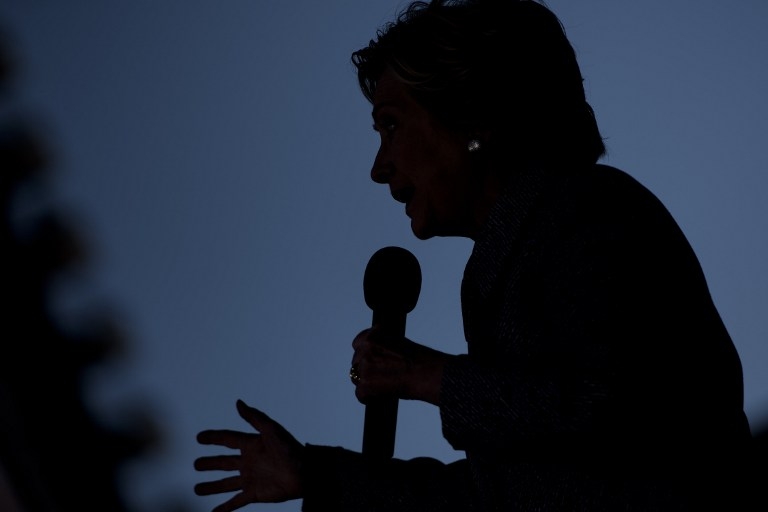
Some of Donald Trump’s falsehoods in the first presidential debate were over-the-top, easily detectable and ridiculous. Others were subtle, sly, and deceptively effective.
Twentieth-century fascism proved that lies gain credence with repetition, and can be effective tools to manipulate public consciousness. In Sunday's second debate, Hillary Clinton should change her tactics and aggressively go after Trump's lies.
Clinton's cautious defence to Trump's offensive offence
In spite of her largely commanding performance in the first debate, Clinton picked her counterattacks too gingerly. As manifest lies were allowed to stand concerning Libya and the Islamic State (IS) group, these same avenues of Trump's attack are likely to come back with a vengeance in the second debate.
Like reviewing the tape of a great heavyweight match-up, study of these interchanges shows how both adversaries can take advantage of their opponent’s distinctive debating styles in the rematches.
Contrary to popular caricatures, Trump is not a buffoon, and, like his running mate Mike Pence, he has a clearly defined debating strategy - lie, deny, and attack. Trump's lies have a purpose: they are part of his attempts to smear Clinton and land a knockout blow.
Hence, mapping the patterns of his deceptions gives clear insights into his attack plan for the rest of the campaign.
Trump's egregious falsehoods
Eager to show that Clinton has been ineffective in the fight against terror, Trump attacked her for putting her plan to defeat IS on her website, blubbering, “No wonder you've been fighting ISIS your entire adult life.”
She should have immediately responded that even though IS roots go back to 2006, the group was only formed in 2013 after she was no longer secretary of state. Instead, she cautiously directed the audience to the fact checkers. This was a missed opportunity to score big and show that Trump does not know "more about ISIS than the generals" as he has claimed.
Very few viewers will actually have consulted any fact checking websites and hence Trump can be said to have gotten away with his bald lie – and in the minds of some, painted Clinton as ineffectual at counterterror even though she has actually advocated a more robust strategy versus IS in Syria than Obama has adopted.
Here Clinton was caught off guard by the sheer extent of the falsity. She merely robotically flagged Trump’s hypocrisy as he initialled supported for the Iraq War – entirely missing the opportunity for a knockout blow by exposing that IS has never controlled any oil in Libya, or the absurdity and immorality of Trump’s advocating a deliberate American policy to steal the Libyan or Iraqi people’s oil.
Set the record straight
My non-profit monitoring service Eye On ISIS has recently published a comprehensive report with Hate Speech International entitled, “Who pays for ISIS in Libya?” In it, we conclusively demonstrate that despite IS’s and Trump’s claims to the contrary, the group has never made a dime by smuggling Libyan oil, nor have they ever controlled any of Libya’s key nodes of oil infrastructure such as ports, pipelines or oil fields.
Yes, they have bombed fields and storage facilities so as to keep their opponents from utilising them, but they have never derived income from Libya’s oil.
Given that he was not called out, Trump is likely to return to the canard of IS’s control of Libya’s oil wealth again. If he does so, Clinton should zing him with the truth, drawing on her success in the first debate when she referenced my argument about Trump's Gaddafi connections as evidence of his flip-flopping and dictator-coddling.
If Trump again mentions that IS is in control of Libyan oil, she should take it a step further, pointing out that as a result of US support for Misratan-led fighters over the last few months, IS has lost almost all of its territorial possessions in Libya.
Time to own up
But Clinton’s inclination to cautious and obfuscatory defence has hurt her over the course of the campaign. For example, no one would have thought lesser of her if she had contracted pneumonia due to her grueling schedule; the American people simply don’t appreciate her trying to cover it up.
As difficult as it is to teach old politicians new tricks, the second debate would be a perfect time for Clinton to switch to an attacking southpaw stance to catch Trump off-guard.
He will almost certainly play the Libya card again, expecting the same docility from Clinton. He may even up-the-ante by mentioning Benghazi and seeking to blame her for the current chaotic state of the country post-Gaddafi and for our ambassador, and my friend, Christopher Stevens’ death.
When this happens, she should abandon her default defensive posture and boldly defend her actions as the best among many bad options.
Firstly, she should explain that America did not lead the intervention in Libya – we merely supported French and British plans to aid the Libyan rebels after both the UN and the Arab League requested an internationally enforced no-fly zone. Secondly, she should make plain that Libya might well have been engulfed in a Syria-style civil war if the international community had not answered their call for help.
Moreover, she should state plainly that in the post-George W Bush world it is not America’s job to engage in forced nation-building, but it may on occasion be wise to help defiant populations against their oppressive autocrats, empowering them to write their own history.
Although Libya is currently a dangerous power vacuum, Clinton’s record on supporting the popular anti-Gaddafi uprisings is nothing she should be particularly ashamed of. Doing nothing, backing a murderous dictator, and letting down both the Libyan people and our NATO and Gulf allies would likely have been far worse.
Allowing Trump to lie and impugn her, by dodging his direct assaults no matter how mendacious, will only fuel the fire of his deceitful attacks.
You can bet your house that IS and Libya will reemerge as big topics in the second and third debates. When Trump clumsily lunges forward, it would be wise for Clinton to stand her ground and counterpunch.
- Jason Pack is the Founder of EyeOnISIS.com and a researcher of World History at Cambridge University.
The views expressed in this article belong to the author and do not necessarily reflect the editorial policy of Middle East Eye.
Photo: Democratic presidential nominee Hillary Clinton speaks during an Iowa Democratic party early vote rally on 29 September 2016 in Des Moines, Iowa (AFP)
Middle East Eye propose une couverture et une analyse indépendantes et incomparables du Moyen-Orient, de l’Afrique du Nord et d’autres régions du monde. Pour en savoir plus sur la reprise de ce contenu et les frais qui s’appliquent, veuillez remplir ce formulaire [en anglais]. Pour en savoir plus sur MEE, cliquez ici [en anglais].



